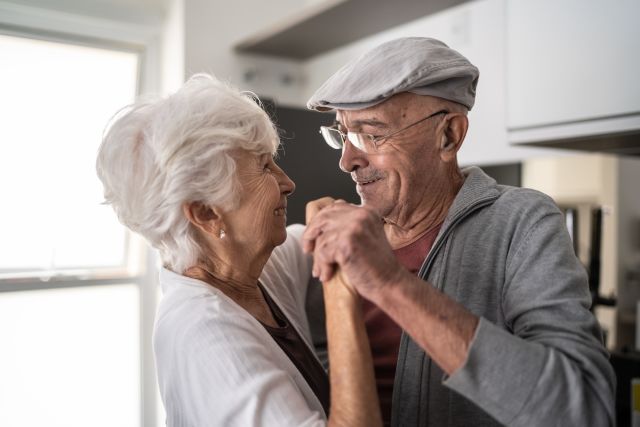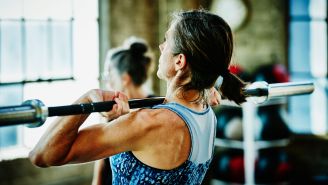Updated on October 11, 2024.
Rates of dementia are rising in the U.S., and many people may wonder if they may develop this brain condition that affects the ability to think. Fortunately, while mild cognitive decline is fairly typical as people get older, dementia itself is not a typical part of aging.
However, while it isn’t inevitable, it’s also not rare. In 2023, up to 6.7 million people in the United States had Alzheimer’s disease, the most common form of dementia. And while there are some risk factors that can’t be changed, like age and family history, making healthy behavior and lifestyle choices may significantly lower your risk.
Keys to healthy brain aging
According to the CDC, the number one change you can make is to quit smoking, if you smoke. Smoking raises your risk not just of dementia, but also of many other serious health conditions like lung disease, cancer, and heart disease.
Getting enough sleep, managing your blood sugar (particularly if you have diabetes), and keeping your blood pressure under control are also important. It’s also vital to keep your mind engaged, avoid excessive alcohol intake, and actively maintain social connections in your community.
But next to quitting smoking, the most important lifestyle choices that can lower your risk of dementia are staying physically active and maintaining a healthy weight. And it turns out that research has shown that dancing is a great way to achieve both of these healthy goals.
Body and brain exercising
A 2021 systematic review published in Neuroscience and Biobehavioral Reviews looked at 35 studies that examined how dancing effects cognition and the brain in older adults. They concluded that the evidence shows dancing helps improve brain function and cognitive function. It also improves physical function.
While all safe forms of exercise can help improve health, researchers noticed that dance has some special factors that may make it especially useful for brain health among older adults:
Dance is fun. Dancing is usually entertaining and pleasurable enough that it’s hard to get bored. It’s also social, and fosters connections between people.
That means you may be more likely to stick to dancing as a habit. This is important, since researchers found that the cognitive benefits that come with regular exercise generally disappear if a person gets out of the habit and becomes inactive.
Dance is adaptable. Dance is also helpful for older adults because of how it can be adapted to meet physical limitations. The intensity of dancing can be slowed down and modified, and the style of dancing can be changed according to a person’s capabilities and preferences.
Dance is mentally stimulating. To learn a dance, you need to memorize a sequence of different movements, which exercises your brain. Dancing is also considered a multisensory activity, meaning you’re using more than just one sense organ. Dance involves feeling, hearing, and seeing, and it engages your memory. When you use more senses, you’re using more of your brain.
Dance improves coordination, which may help cognition. Past research has shown evidence that building stronger coordination in your body, especially with more complex aerobic dancing, can have a direct positive effect on cognition, or the ability to think.
Dance improves mental health. A 2023 systematic review and meta-analysis published in the journal Brain Sciences looked at the psychological effect that regular dancing had on older adults who didn’t have dementia. They found that dancing improves overall mental health.
Participants who danced in groups, like in dance movement therapy classes, also tended to feel more socially connected and less socially isolated. Both good mental health and social integration are factors that can protect against dementia.
Best dance forms
According to these reviews and past research, there was no single style of dancing that was most helpful. Instead, there were many aspects of dance training that were more beneficial. These include:
- Aerobic dancing. This gets your heart rate up.
- Dancing that involves remembering complex steps, rather than just bobbing back and forward
- Dancing that you enjoy, so you will continue to regularly dance
- Dancing that gets you socially involved with others in your community
Dance movement therapy was also shown to be helpful in many studies. A type of creative therapy, dance movement therapy focuses on healing through embodied, movement-based therapy. Dance therapists base their work on the premise that movement is a nonverbal language that can be expressive, and that can help with physical, cognitive, social, and emotional issues.
How to integrate dance into your healthy habits
There are many ways you can venture into healthy, fun dance practices. If you’d like to try out some moves on your own, check out online video tutorials or classes. Be sure to select dances that have more complex steps and that are set to music you truly enjoy.
To amp up the benefits, look for in-person dance classes in your community. You can also find a certified, qualified dance therapist near you in the American Dance Therapy Association’s online directory.
Not only may dance improve your health, but it can also be really fun. You don’t need to be Ginger Rogers or Fred Astaire. You just need to be willing to give it a try.
As famed American dancer and choreographer Agnes de Mille once said, "To dance is to be out of yourself. Larger, more beautiful, more powerful."







